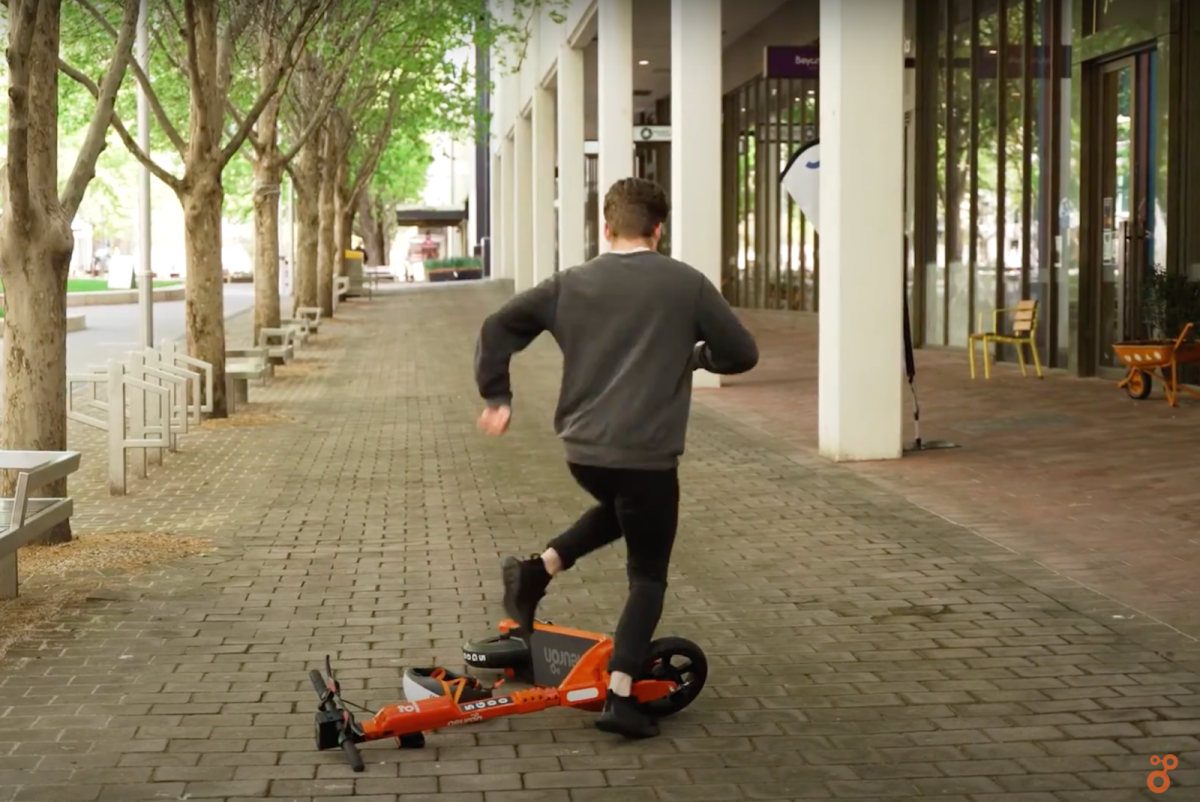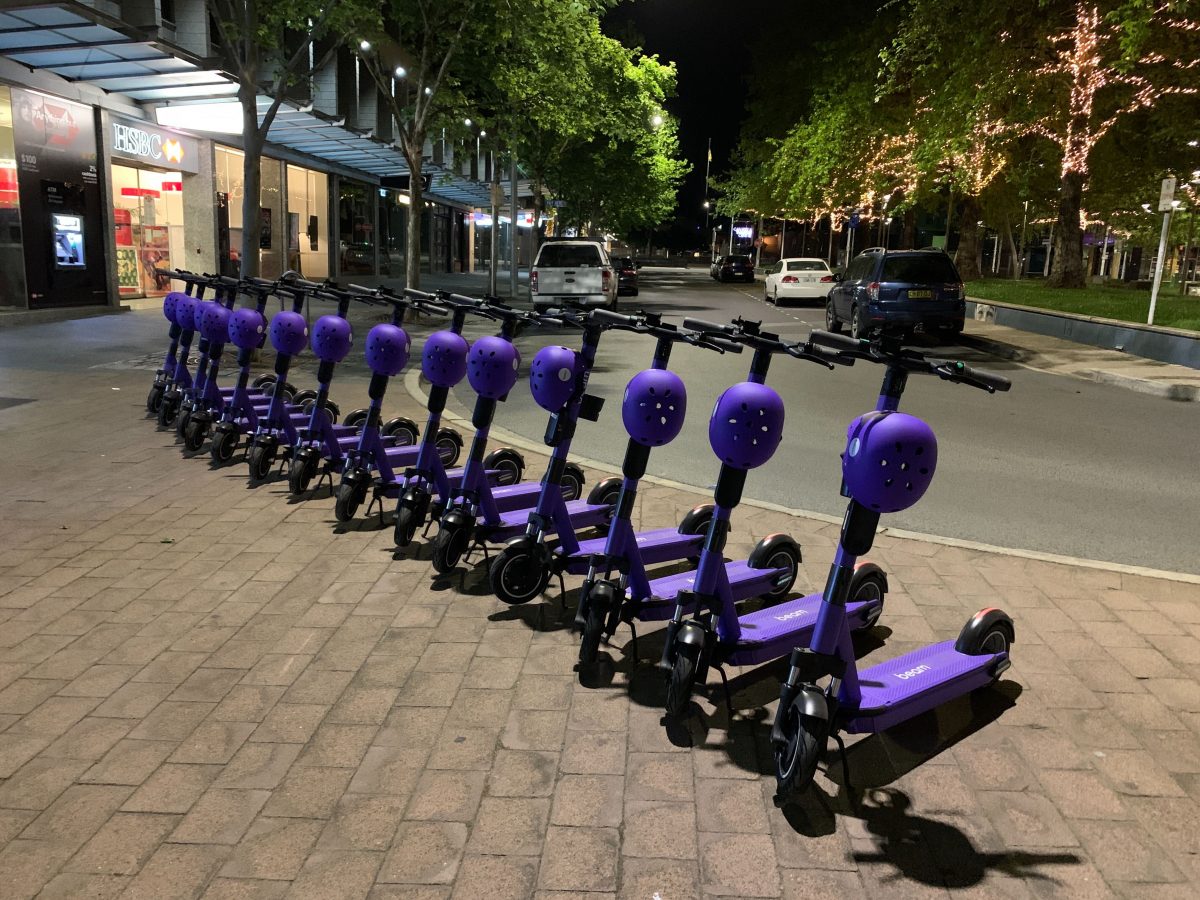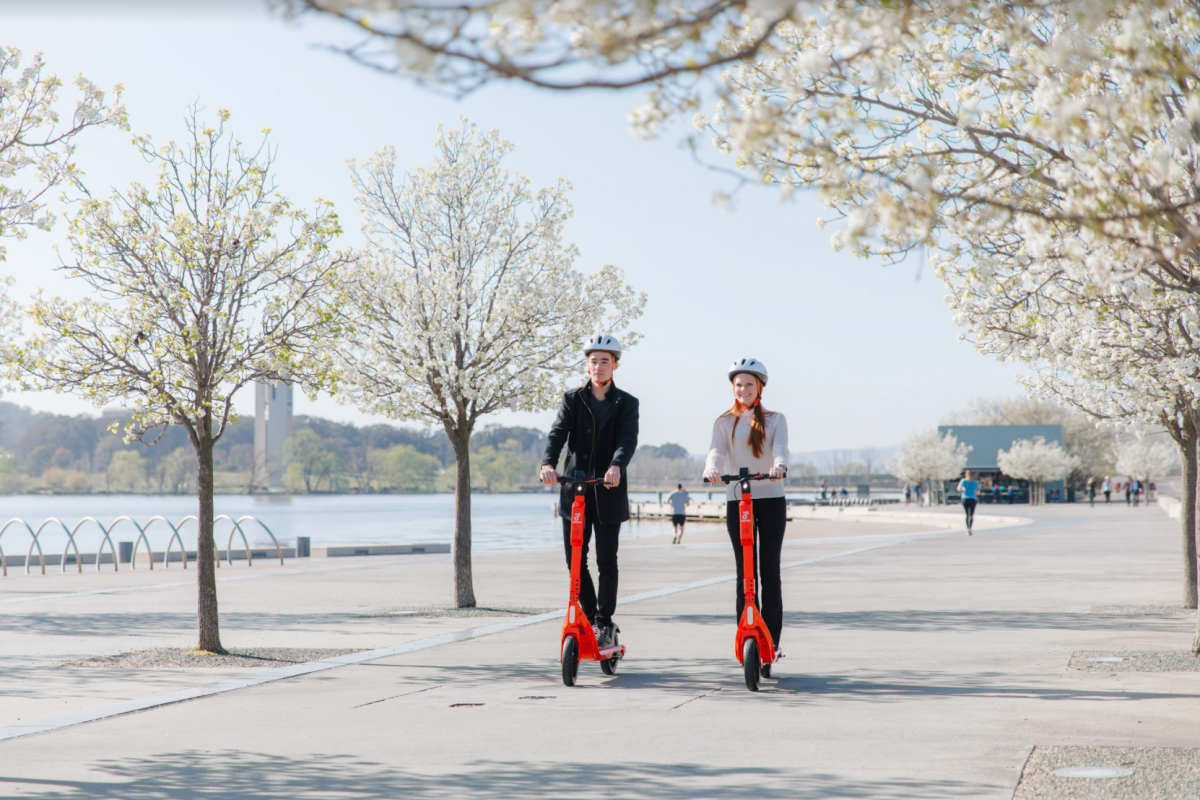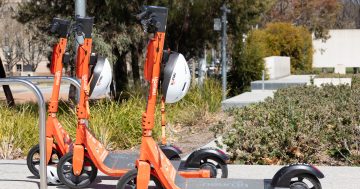
You can’t park there! Photo: Neuron Mobility.
Six people in the ACT have been banned from riding the orange Neuron Mobility e-scooters since the beginning of this year, while a further three have been suspended and 54 forced to undergo e-scooter safety re-education.
Beam Mobility, the operator of the purple e-scooters, has banned 176 riders and handed out 490 strikes since 2020.
The operators have revealed the statistics as they crack down on errant riders for National Road Safety Week this week (5 to 11 May).
Neuron and Beam each introduced 750 e-scooters to Canberra’s CBD and Parliamentary Triangle areas in July 2020 as part of an ACT Government plan to increase active travel.
The scheme has since been rolled out across Belconnen, Gungahlin, Woden Valley, Weston Creek, Molonglo and Tuggeranong.
Neuron’s fleet of e-scooters has racked up about 3.4 million kilometres since 2020, and the operator says feedback has been “extremely positive”.
“The vast majority of people ride responsibly, with over 99.99 per cent of trips ending safely and without incident,” it said in a statement.
But there’s a dark side.
Figures on how many people present to Canberra Health Services (CHS) with e-scooter injuries are hard to come by.
A CHS spokesperson told Region this is because “Emergency Departments and Walk-in Centres run by Canberra Health Services do not code injuries by the mechanism of injury but by the injury itself”.
By the end of 2020, however, it was revealed seven people had presented to Calvary Hospital and more than 50 to Canberra Hospital with injuries sustained while riding an e-scooter.
A clinical study by two doctors from Brindabella Orthopaedics found there were 520 presentations to the Canberra Hospital between July 2020 and July 2021, and nearly 17 per cent of these required surgery, mainly upper limb injuries like broken wrists and fractured clavicles.
Of the total number of patients, 36 per cent were intoxicated at the time of injury, and only 30 per cent wore a helmet – both clear offences under the ACT’s e-scooter laws.
Canberra has recorded one road fatality of an e-scooter rider when a 19-year-old woman was hit by a car in Kambah in September 2022.

You aren’t seeing things! Scooters can be lined up neatly, complete with helmets. Photo: Photox.
The government has introduced fines of up to $3200 for “dangerous behaviour” while riding an e-scooter. Between 1 January and 30 April this year, ACT Policing issued 17 traffic infringement notices and four cautions to e-scooter riders.
Offences included not wearing a helmet, riding on the road and riding with another person.
The operators have also come up with their own penalties and incentives.
Neuron says riders who “break the rules or ride dangerously” can be suspended for a period of time or banned entirely from using the service.
“When riders receive their first warning (strike), our aim is to re-educate them by delivering a targeted training module to complete from our industry-leading digital education platform, ScootSafe Academy,” the operator says.
“Repeat offenders may have their accounts suspended.”
Neuron also uses a ‘Cognitive Reaction Gametest’ to help riders assess their sobriety.
Over the one-minute in-app quiz, the rider is presented with a series of traffic signs and given a certain amount of time to react. Too slow and a “Are you alright?” message will appear, while a fast reaction earns a rider a $1 credit.
Beam employed a similar system, called ‘cognitive-based drink riding deterrence test’ during Summernats 36 in January. This was to avoid a repeat of last year’s festival when 72 riders were banned over four days.
It has since been “strategically deployed during peak travel hours on Friday and Saturday nights, targeting various high-traffic hotspots and nightlife areas”.

E-scooter riders reportedly did burnouts on Braddon’s rainbow roundabout during Summernats in January 2023. Photo: Michelle Kroll.
For National Road Safety Week this week, Neuron has deployed a “greater number” of Safety Ambassadors across the ACT to “remind riders to follow the rules”. A few “lucky riders” will also be rewarded for “exemplary parking”.
“Those who violate [the rules] may … face a fine from the police.”
National Road Safety Week is an initiative of Safer Australian Roads and Highways (SARAH) Group, which partners with road safety organisations and governments and encourages people to “pledge to drive so others survive”.

E-scooters are expected to give way to pedestrians at all times. Photo: Neuron Mobility.
E-scooters are permitted on footpaths (provided they don’t exceed 15 km/h), shared paths and bike lanes, but riders must keep left and always give way to pedestrians.
“Although the speed of rental e-scooters is automatically limited, riders must slow down in high foot traffic areas and ride according to the conditions and other path users,” Neuron says.
“E-scooters should not block footpaths, doorways, fire exits, or public transport stops, nor should they obstruct pedestrian crossings and tactile ground surfaces, which are very important to those with visual impairments.”
Original Article published by James Coleman on Riotact.






